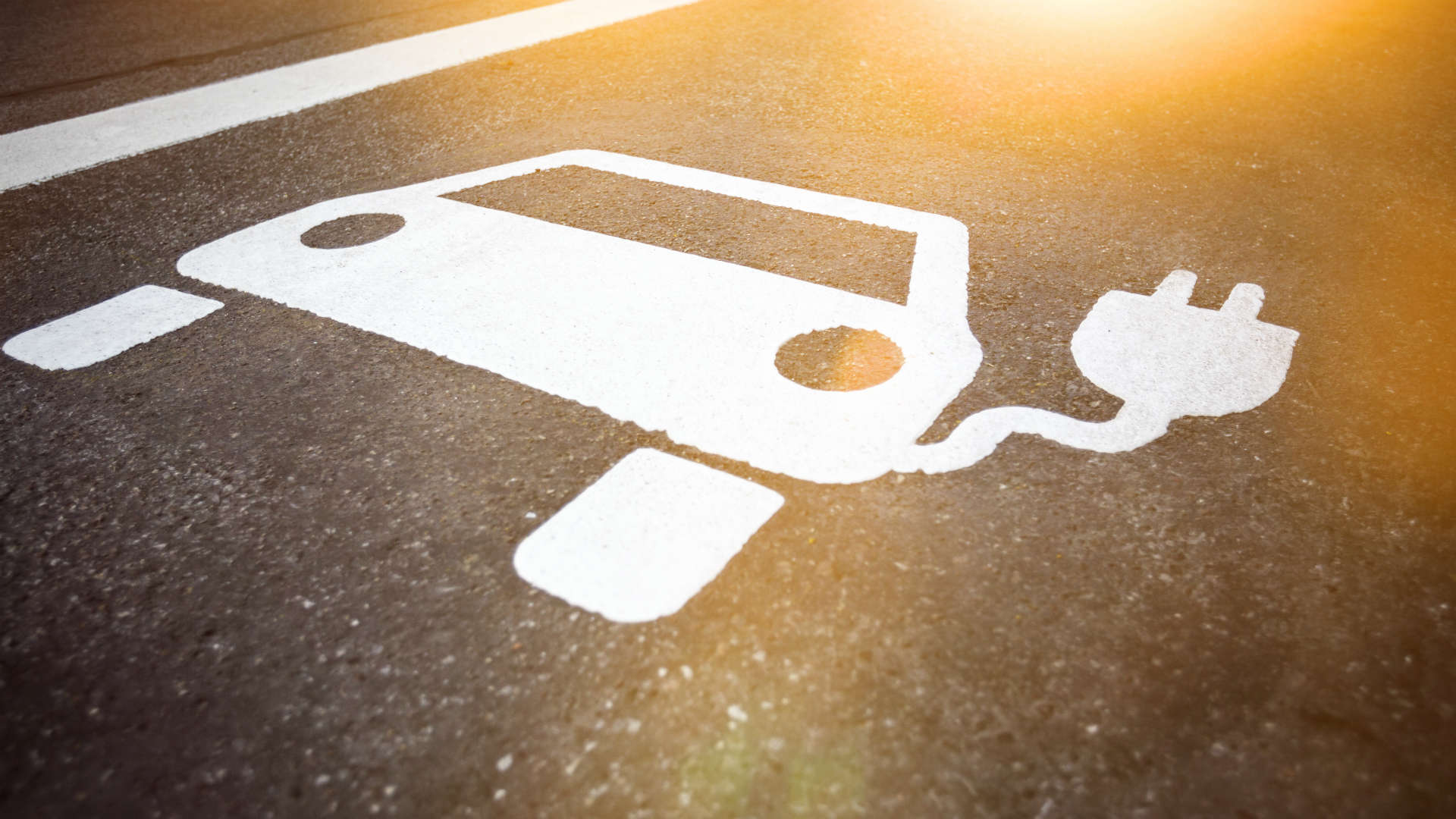
If you’re considering an electric car, you might be getting tangled up in the various charge point types. Unfortunately, there’s no industry standard for these, so it pays to do a little homework before you buy an EV.
There are three types of electric car charge points: rapid, fast and slow. The names represent the charging speed, with power measured in kilowatts (kW). Here, we provide a brief description of the three different charge points and the associated connectors.
Rapid chargers
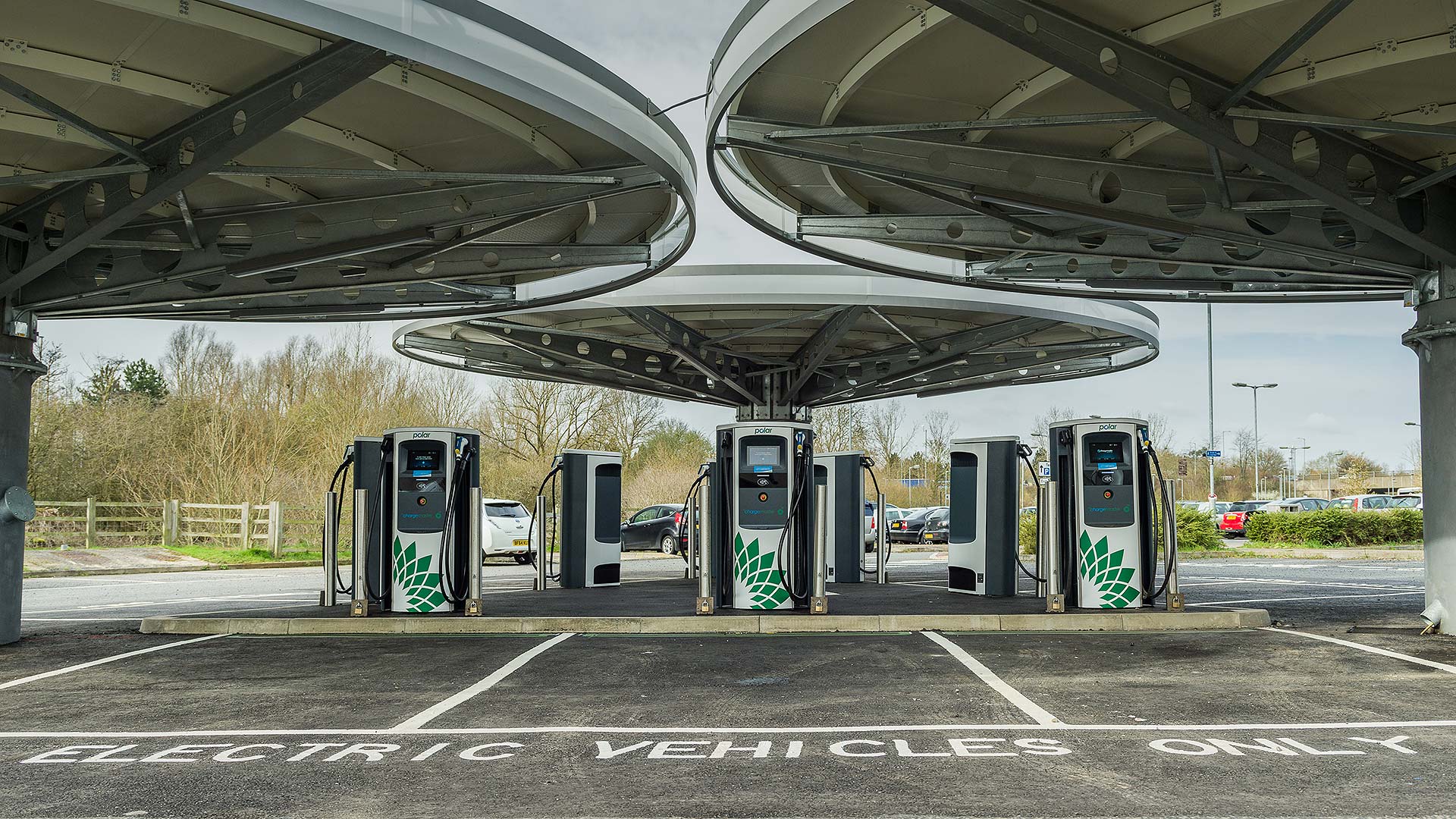
You’ll find rapid chargers at motorway service stations and close to major roads. As the name suggests, these provide the quickest charging time, recharging batteries up to 80 percent in just 20 to 40 minutes.
Manufacturers and press articles will often refer to an ‘80 percent’ charge in electric car literature as chargers have an automatic cut-off at this point. The reason is to protect the life of the battery.
You’ll find three different types of rapid charging in the UK: rapid AC (alternating current), rapid DC (direct current) and the Tesla Supercharger. The charging ranges from 43kW to 120kW, depending on the connector type.
The cable is tethered to the charging unit and only cars with rapid-charging capability can use the machines.
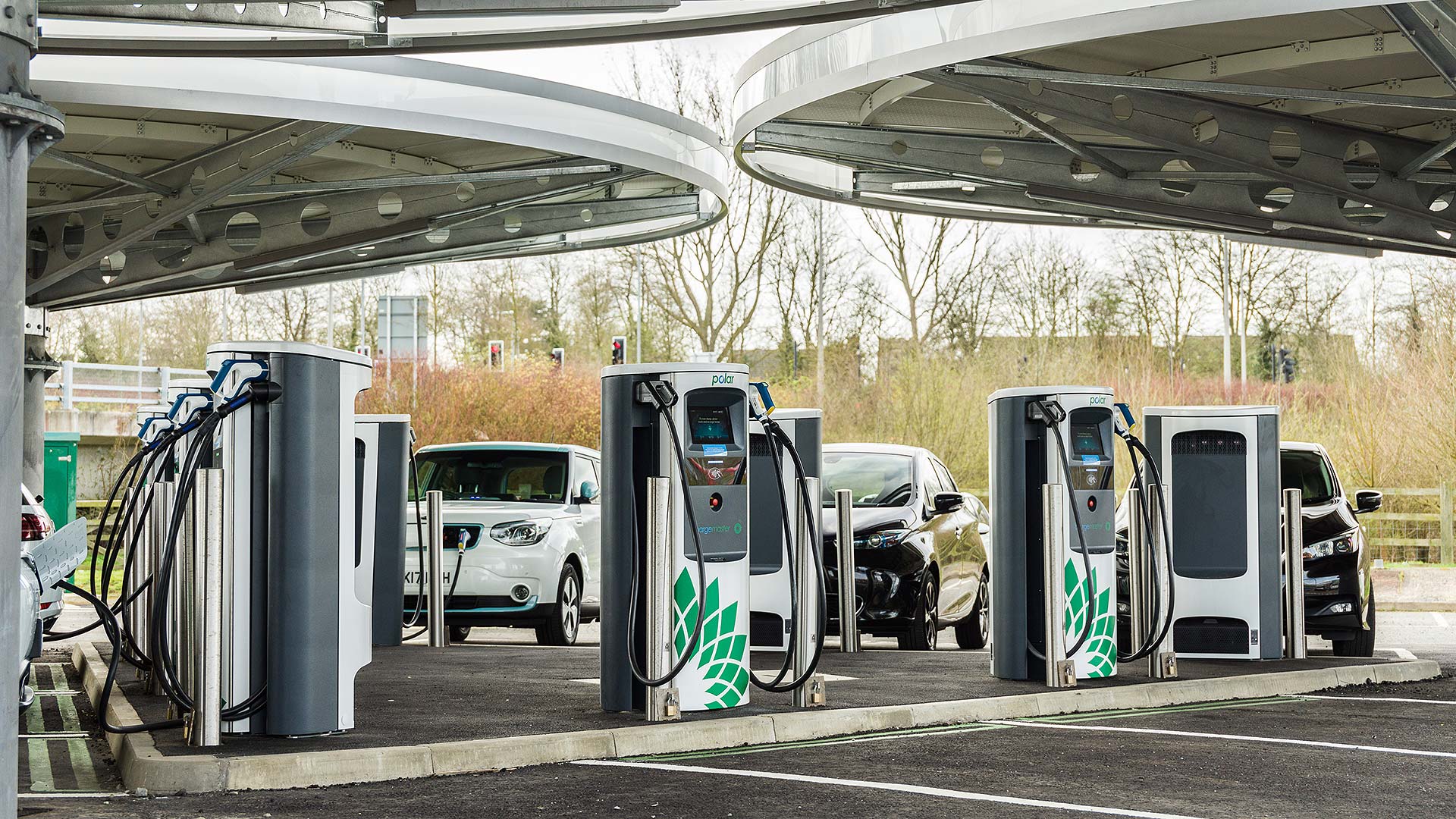
Rapid AC chargers use a Type 2 connector to will deliver power at 43kW, with the car’s onboard rectifier converting AC into DC. The Renault Zoe and Renault Kangoo ZE are examples of cars using rapid AC.
Rapid DC delivers power at 50kW straight to the electric car, bypassing the converter, making it quicker than rapid AC. There are three connectors: CHAdeMO (Charge de Move), CCS (Combined Charging System) and Tesla Type 2.
Cars with a CHAdeMO connector include the new Nissan Leaf and Kia Soul EV. Those with a CCS connector include the BMW i3, Hyundai Kona, Hyundai Ioniq and Jaguar I-Pace. As the name suggests, the Tesla Type 2 unit uses a Type 2 connector, but delivers charge at 120kW for Tesla vehicles only.
In the future, we can look forward to 150kW and 300kW chargers, which will deliver incredibly quick charging times.
Fast chargers
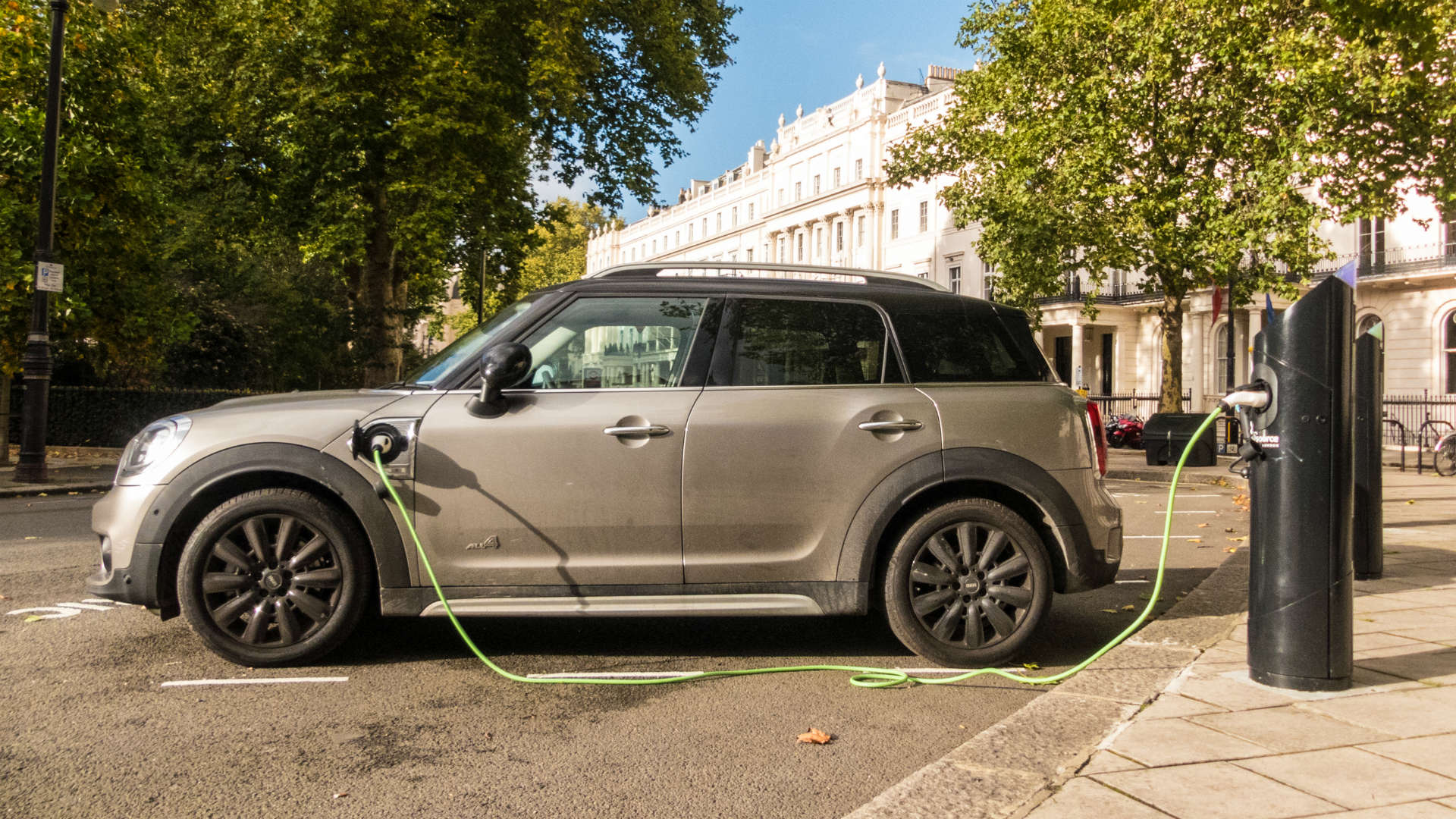
You’ll find fast chargers in locations where cars tend to be parked for longer periods of time, such as car parks, supermarkets, leisure centres and retail outlets. All fast chargers draw AC current from the grid and use the car’s onboard converter to turn it into DC.
This is the most common charger type, and almost all EVs can use fast charge points, with the network featuring both tethered and untethered units.
The majority of fast chargers are untethered and deliver power at 7kW, with a 30kWh battery recharged in 3-5 hours. A more powerful 22kW charger will do the same in just 1-2 hours.
Most EV owners will find a Type 2 connector in the boot, giving them full access to the fast charger network. Other fast chargers use a Type 1 connector (7kW) or Commando (7-22kW). Tesla ‘Destination’ chargers deliver 11kW to 22kW of power.
Slow chargers
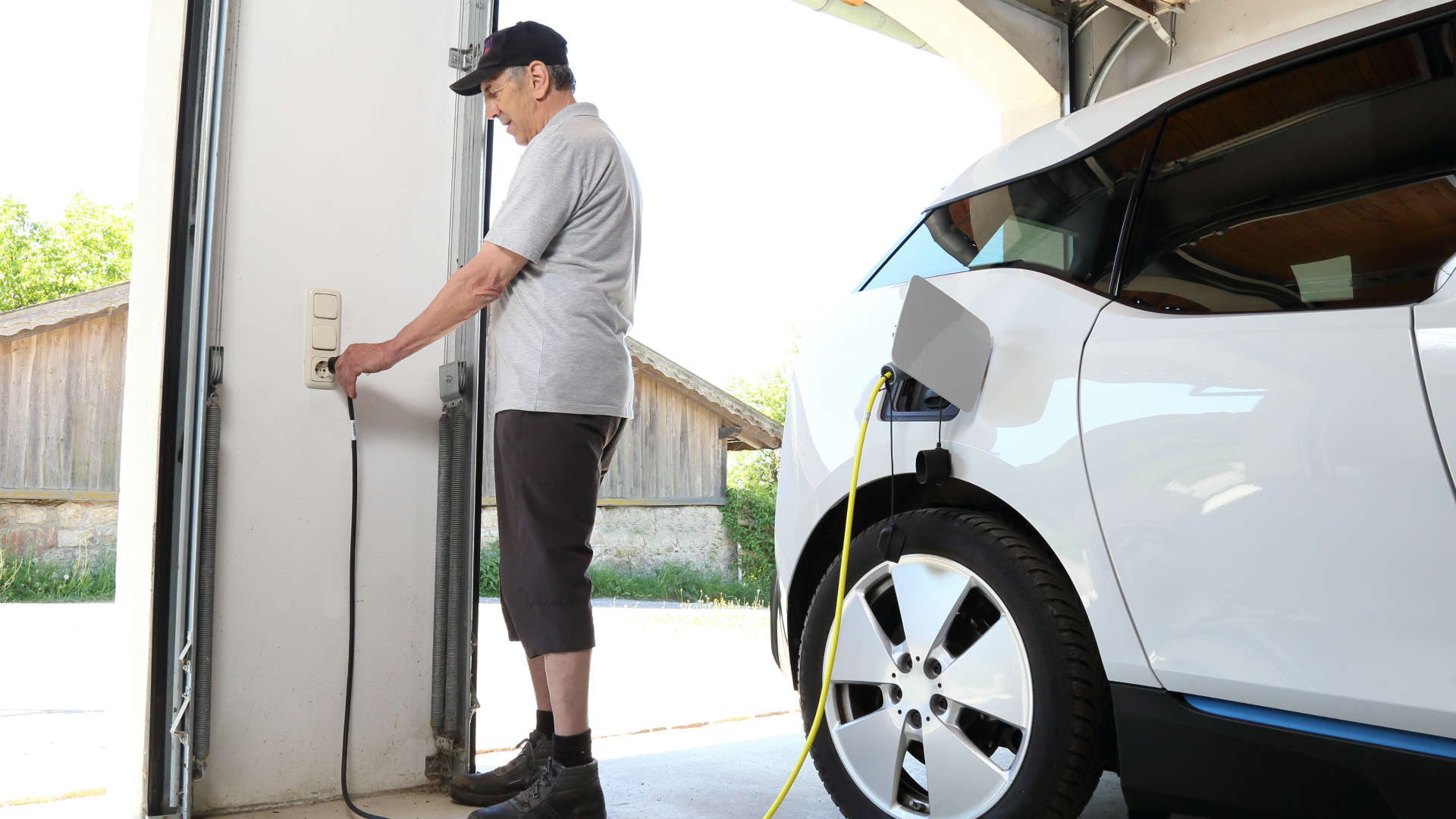
Slow chargers tend to be found in homes and offices, where a car can be left on charge overnight or during the working day. Most are 3kW, but some lamp-post installations will charge at 6kW.
Charging can be carried out by a standard three-pin socket, but the installation of a charging unit is highly recommended. There are three connector types: Type 1, Type 2 and Commando. All of these deliver power at 3kW, and it will typically take up to 12 hours to charge an electric car.
To find a charge point near you, visit Zap-Map.com.